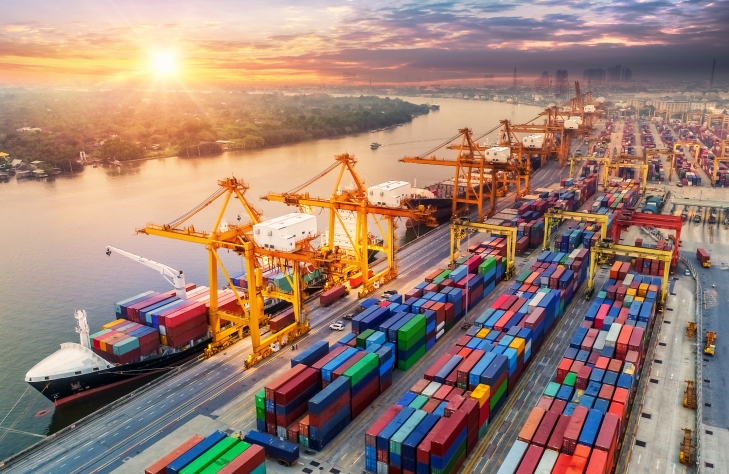
Mindset change is needed to capture shifting value in the value chain; implementing straight-through payment is still an obstacle
The commodities trading business is much changed since the 2008-2009 Great Financial Crisis (GFC). Whereas banks such as Morgan Stanley and Merrill Lynch used to feature prominently in the paper market, a stricter regulatory environment led financial institutions to give up that part of the business to trading firms.
Consolidation is also the keyword in the physical side of the business. From Vitol’s acquisition of Noble Group’s U.S. oil business – the latter’s legal trouble notwithstanding – to Cargill and Copersucar’s co-creation of the world’s largest sugar trader, Alvean, things appear rather topsy turvy.
“I have seen more change in the past five years than I have the past 20 years before that,” proclaims Frederik Groth, APAC Managing Director of China’s largest agriculture and food-processing company, COFCO. “We have a transformation of agricultural commodities [where] a lot of it is going into biofuels and bioethanol, which has changed the industry.”
Speaking at a discussion panel at the recent International Trading Institute@SMU 10th anniversary celebration event, Groth also highlighted the challenge posed by the democratisation of information: “The advent of Google gave everyone the same knowledge we did. With a cellphone, every farmer has access to information.”
“Part of what’s happening comes from the information transparency,” explains Andreas Sohmen-Pao, Chairman of shipping giant BW Group when asked if the loss of margin for commodity traders has affected the shipping industry. “We see big trading companies like Vitol saying, ‘We need to own more of the assets. We need to get into shipping and refineries and distribution because it’s going to allow us to optimise and extract more efficiency and value.’ They may well be right, time will tell.
“What’s happened over the past 10 years or so is that freight forwarders started to suck a lot of value out of the chain. So the Kuehne + Nagel’s suddenly started to take a lot of the margin, and container shipping became a commodity.
“Now the question is: Will the new platforms such as Amazon and Alibaba be even closer to the customer, and have an even better sense of where the flows are? Will they start to suck out more of the value? The question then is, as a player and a shipping line, what do you do?
“A lot of them are trying to digitalise and move into areas dominated by Amazon and Alibaba, but if you don’t fundamentally own the customer and you don’t have a claim to the customer like Amazon and Alibaba do you’ll be condemned to the commoditised end of the spectrum.”
The digital challenge
Another panelist, Wolfgang Baier, CEO beauty products distributor Luxasia, expanded on the threat posed by e-commerce which allows consumers to “get beauty products from anywhere in the world”.
“As a distributor how can we survive?” he asks rhetorically. “We decided to be omni channel, we opened our own retail stores and we started our own e-commerce platform. We’re getting close to our consumers with CRM technology. We had to our whole business apart and put it back together.
“But it comes back to people. You could have the best technology and processes but you don’t get anywhere without the right people with the right mindset. If we do not change, if our mindsets don’t change we would become redundant.”
Also of crucial importance is the lack of straight-through processing capability amongst the smaller companies that make up the supply line of big corporations. Gerald Sun, Vice President of Business Development at MasterCard, elaborates how the trading system is at a disadvantage vis-à-vis the likes of Alibaba and Amazon:
“If you look at trade there has been a lot of innovation in the past couple of years but a lot of the handoffs are still analogue; we’re still not straight through. Much of the reason why you’re not seeing things as you would on Alibaba is because the current trading system is not unlike the ancient Silk Road where you actually pass the goods from one camel to another. Today you have ships doing that and people are shuffling documents from one place to another.
“So what are we doing to solve this and achieve a straight-through process? We are trying to get people to agree on some standards and some laws in order to push the information across so that we can complete transactions in a speedy manner.
“A lot of the suppliers and customers of the big companies are small companies. If you can’t bring the small companies along on the digital journey, we will always have these customers that you have to have but you really don’t want to have. These companies contribute very little volume and it doesn’t make financial sense to send your IT folks to sort out the technology processes with them. The whole thing could cost $100,000 and these companies cannot afford that."
Follow us on Twitter (@sgsmuperspectiv) or like us on Facebook (https://www.facebook.com/PerspectivesAtSMU)
Last updated on 29 Nov 2018 .

